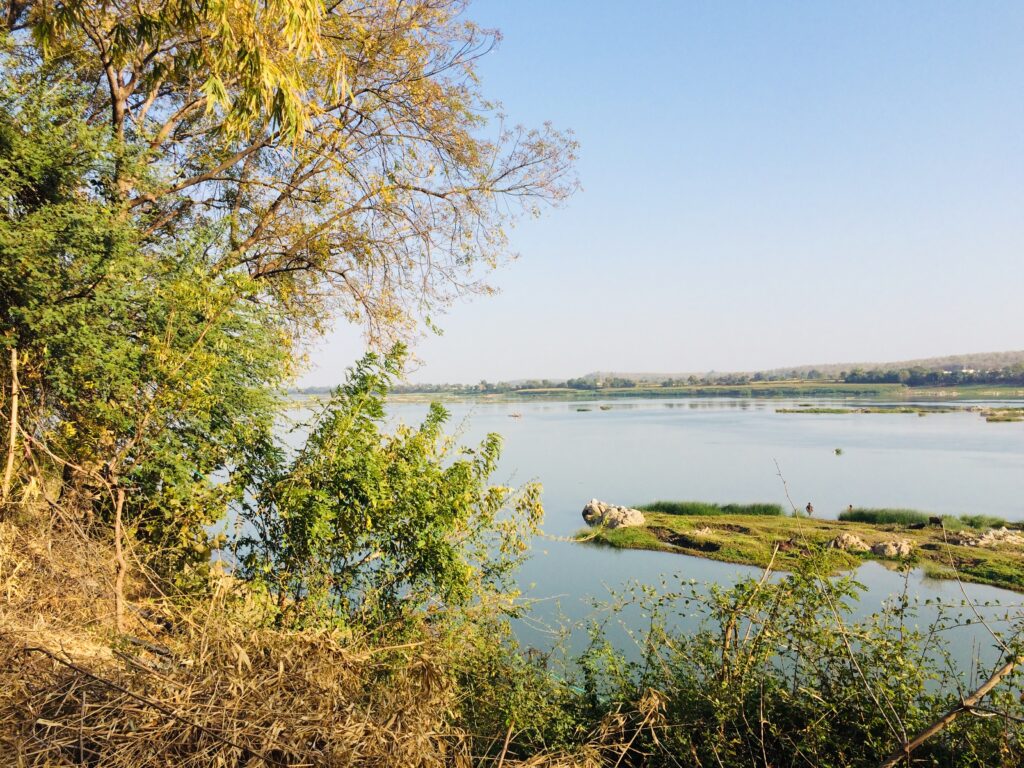
Who is at the intersection of land tending, social health/upliftment, creativity and collaboration in central/West India? I wanted to find out. These are just a few of the kind souls and unique spirits of different generations that I was fortunate to meet in 2025. A glimpse into some of the lives and work of these ‘Karma Yogis’, who I had the blessing of spending quality time learning from, working with, sharing nature-based Ayurveda/Yoga, and brainstorming ideas for the unfolding journey of life.
We all share a vision of community wellness that will continue to grow and evolve. The care, love and dedication that I witnessed in their daily life inspires me, and I hope this glimpse of their work inspires you. 💫
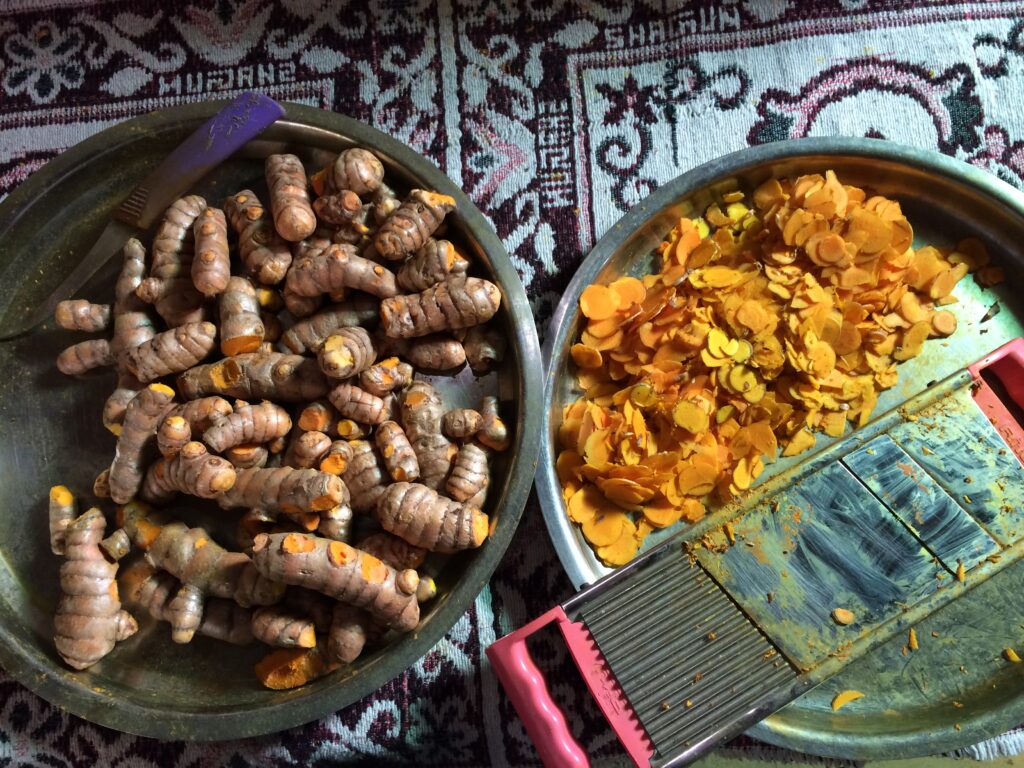
Anjali and Vatsal of Natueco Farm with Malpani Trust in Bajwada, Madhya Pradesh
The 5 L’s of Natueco Farming: Life, Livelihood, Love, Learning and Laughter
Adjacent to the banks of the Holy River Narmada, Vatsal and Anjali are stewarding a vibrant and magical demonstration farm, combining their reverence for the natural world with their dedication to honor the vision and teachings of making truly holistic soil regeneration accessible to all. Their method, called Amrit Krushi/ NatuEco farming, was developed by the late Deepak Suchde (father to Vatsal and teacher to Anjali and countless others, now including myself) with his guru Dabholkarji, a land-based Gandhian social reformer, in response to the systemic ills of our modern food industry which disproportionately impact small farmers. Vatsal and Anjali now continue to share the teachings of Natueco farming and host periodic trainings where individuals and groups, including many NGOs/ nonprofits, come to learn the techniques, share ideas, and are inspired to carry this deep holistic approach back to their home places. Anjali is also a kind and welcoming presence for the local youth, and she has a vision for a future village school that will support girls and young women to expand their opportunities and realize their potential.
Check out this excellent documentary about Deepak Suchde and the farm.
And glimpse their current work at amrutkrushi.com
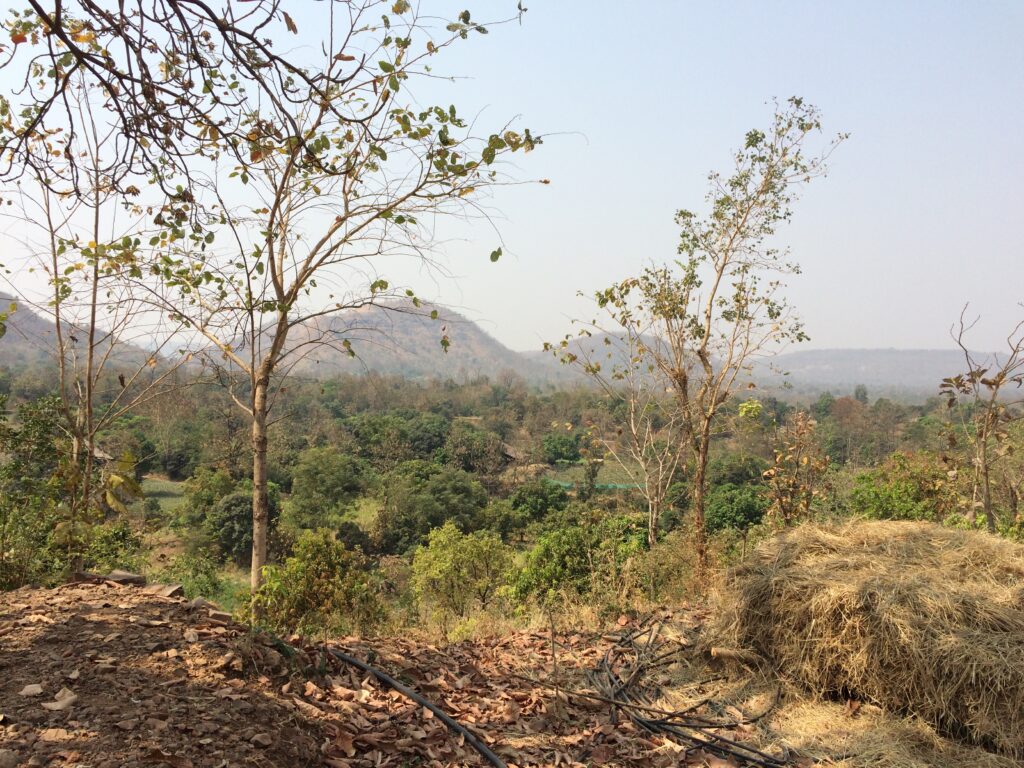
Swati and Hiren of Mittidhan in Sidumbar Village, Gujarat
Leading this NGO with dedication and compassion, Hiren and Swati are using their creativity, talent, and networks to address diverse needs in the rural farming areas of South Gujarat. They create and distribute their own custom made tools from their workshop at a subsidized rate to small farmers, including tools that are especially designed with the feedback of women in the villages, who do much of the labor in the fields and at home. They also engage with youth through regular educational events for youth and school groups. To support villagers in extreme need, such as elders who are without food or housing, they provide regular check-ins, distribution of food essentials, and support with home construction. Swati is also an architect with a passion for creating beautiful and functional built environments with natural materials to serve families and communities. Together they are creating a home base with a workshop, educational space, organic farm and a uniquely designed groundwater recharge system, sharing their resources and being a model for people-powered solutions.
See some of their projects at www.mittidhan.org
Support is welcomed and you can contribute donations by contacting them directly at mittidhantrust@gmail.com.
And find Mrunmay Designs, Swati’s architecture company, here.
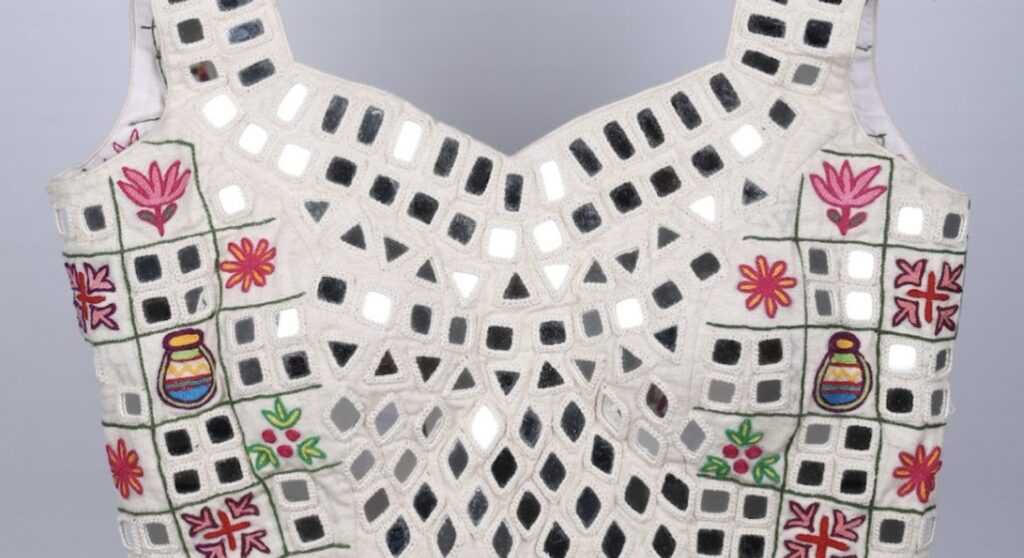
Rina Vachhani of Tribals Corner in Valsad, Gujarat
Rinaben is a woman of many talents with the confidence and skill to envision change, and then create it. She started a company to expand educational access for youth in Gujarat, and then worked with rural women to develop their economic opportunities through small scale enterprise, all while raising her now grown son. Now her company Tribals Corner– which currently partners with over 100 women in villages in Gujarat– provides a platform of employment and marketing for their traditional textile craftwork in the city of Valsad and online, enabling the women to stay and earn their living from their villages. Through this, they are revitalizing skilled artisan craftways, which have become more rare (including the highly skilled regional specialties of block printing, embroidery, and mirrorwork). And now– in response to the textile industry’s dye practices generating toxic byproducts that pollute waterways globally, Rina has begun sourcing natural dye plants from the region, and is developing a process to produce naturally-dyed clothing…
See this sweet video by Tribals Corner.
Check out their new web store!
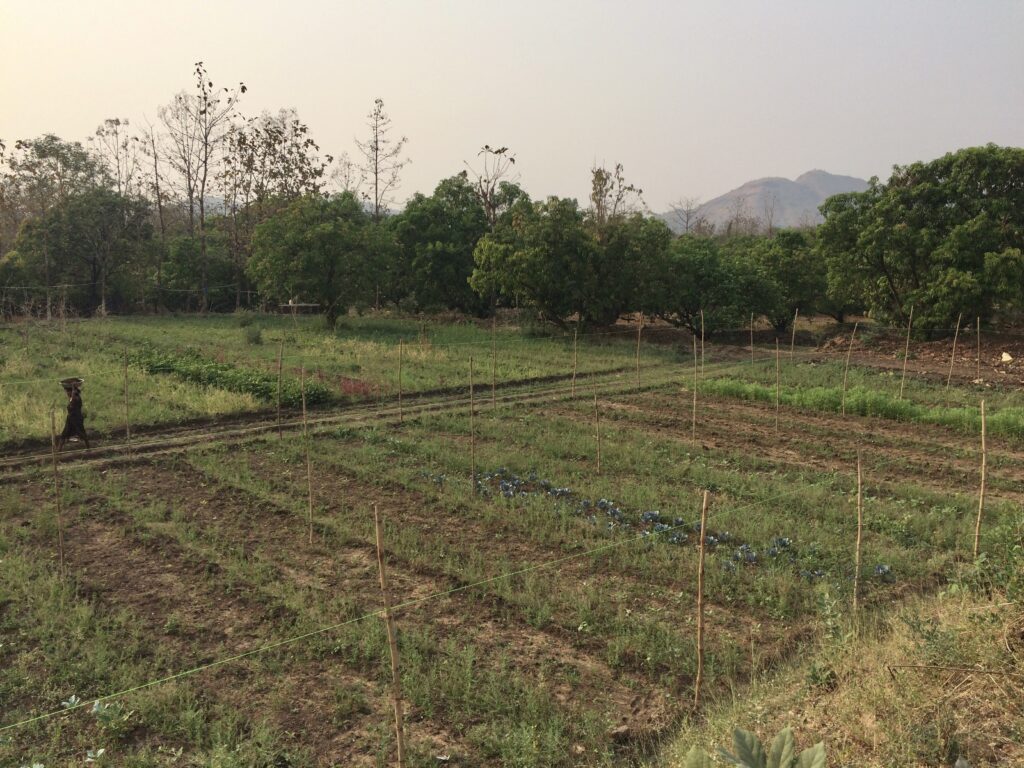
Hirenbhai of The Land in Valsad, Panva and Sidumbar villages
Hirenbhai brings a deep respect for all of Earth’s inhabitants into his work with plants and people. With life journeys and discoveries through activism, forest traveling, plant frequencies, farming, Ayurveda and Yoga, he is guided by a deep connection to the wisdom of Nature. He cultivates and prepares herbal medicines for the local people, and has started an organic seed-saving farm in order to provide a local climate-adapted crop seed bank for the local farmers. Such a seed bank improves their crop strength, and helps to conserve their finances, health, soil and water (by reversing the widespread dependency on corporate genetically modified seeds coupled with toxic pesticides). His evolving vision is to build a learning and retreat space on the farm, where people can meditate, connect with nature, and learn regenerative farming techniques to become better stewards of the land…
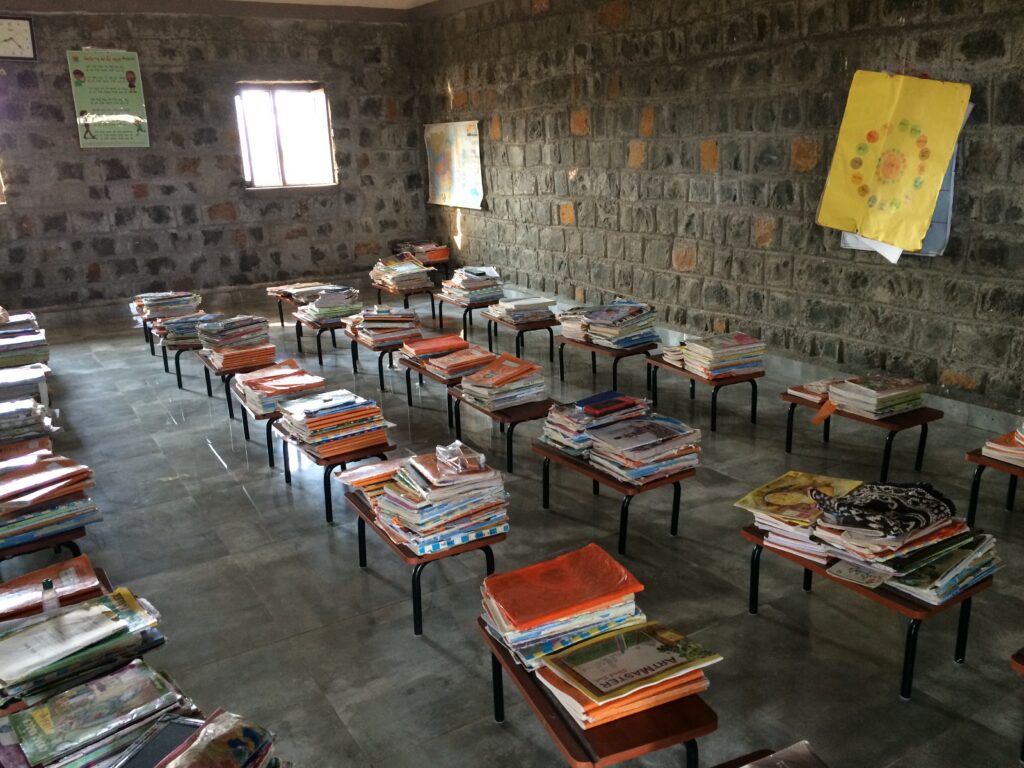
Varshaben of the Gunjan Girls’ School in Girnari Village, Kaprada, Gujarat
Varshaben has made her dream of opening a residential school for girls in the village, a reality. The Gunjan school (pronounced like moon-sun, named from the Gujarati word which translates to “nature’s resonance/the vibration of the forest”) was built 6 years ago with funding from a kind soul in Mumbai, on what was a mostly barren ridgetop in the remote hills of southern Gujarat. The school now serves 84 girls in grades 6-8 from the local tribal community (whose first language is Kokni, not Gujarati). Varshaben’s own early life experiences growing up in a similar community had compelled her to NGO/nonprofit work in support of especially girls and women there, for she saw a great need to help develop their knowledge, self-sufficiency and confidence where such opportunities were lacking. Her memories of her family’s small farm and her lifelong connection to the natural world also inspired in her an appreciation for tending the land for biodiversity, as well as cooking and sharing foods from nature (and she is a gifted cook). Unique to the school’s grounds are the organic fruit trees, vegetables, and Ayurvedic herbs on the newly regenerating land, which the students learn to become stewards of through daily observation and tending via team-oriented projects.
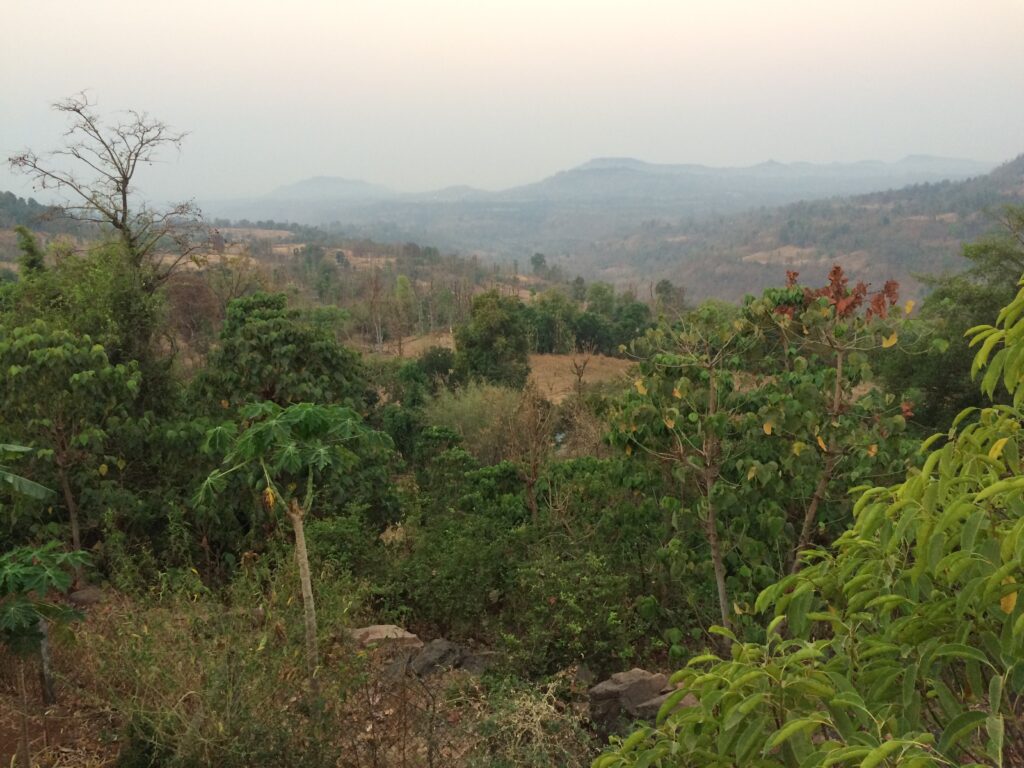
And this by no means is the end of the list!– for these initiatives are growing, connections are in the making, and people (globally) are waking up to the fact that we are the ones we’ve been waiting for. And as with any course of action (karma), let us also remember that our endeavors in the external world must be balanced with the regular work of looking and listening within. Only then, can we be generative of both our inner and outer life.
So I must highlight another amazing, unique group of people, who were also instrumental to my own Ayurveda journey:
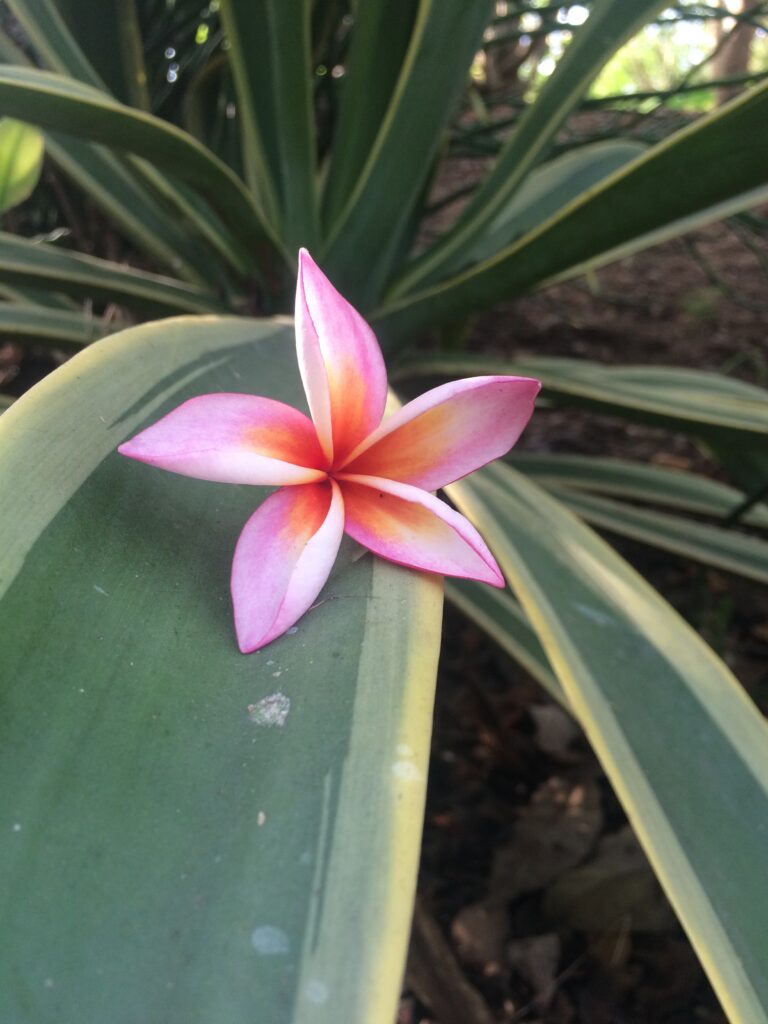
Drs. Rakhee, Surendra, Amiben and Manish at Punarnava Integrated Ayurveda Center in Shanti Mandir Ashram, Magod, Gujarat
At the Shanti Mandir Ashram, one can feel a subtle energy that is becoming harder to find in modern India: sattva, or peace and clarity. It is in the sweet prana / life force of the surrounding plant life including numerous mango and chiku trees (some over 100 years old), the heritage Gir cows of the gaushala / cow shed, the blessings of compassionate Gurus and devoted multigenerational students in the Nityananda lineage, and the powerful vibrations of daily Sanskrit chanting and ceremony. Here sits Punarnava Integrated Ayurveda/Panchakarma Center, with its team of skilled and compassionate healers in Ayurveda, Naturopathy, psychotherapy, and allopathy. I observed Punarnava’s approach is more holistic than much of modern Ayurveda happening today, and they work with great care to understand each person’s unique condition and provide the needed support. The team is also providing free healthcare to all youth at the ashram school; hosting parenting workshops with the wisdom of the ancient spiritual texts; and now conducting research into psychotherapy approaches to support greater success in the educational outcomes of the local youth. The socially conscious Shanti Mandir ashram has several charitable works, and people can learn more, and make donations to their programs, here.
Explore Dr. Rakhee’s free online lecture series, Living Ayurveda.
Find out more about Punarnava and their offerings.
